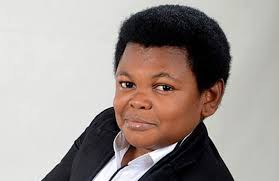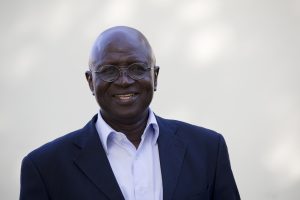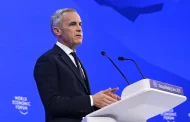By Adagbo Onoja
At a time of great stress on power as what most counts, it has always been surprising that the reel is not that listed in Nigeria’s power resources. This is in spite of the tendency to launch one campaign or the other by almost every administration to counterbalance the narrative of Nigeria as the epitome of chaos, corruption. In the wake of Nollywood and its dominant expressions across the country, that is even more surprising. More so that, as Adesokan would argue, Nollywood has a longer history than a phenomenon of the 1990s. According to his 2004 piece on Nollywood, it has been there since 1970 when “trained filmmakers such as Ola Balogun, Francis Oladele, Jab Adu, Adamu Halilu, Eddie Ugboma and Ladi Ladebu shot feature films in Yoruba, Hausa and English”. So, Nollywood, Kannywood and whatever other woods there are today reflect a trajectory that should have been part of the country’s power resources more aggressively than has been the case.

US Flag

China

India

Nigeria
In its present level of development, the industry has forced Nigeria into the club of nations whose reel geopolitics is a subject of interest on a global scale. This is not just from the point of academic interest but even more so in relation to Africa being the corner stone of Nigeria’s foreign policy and Nollywood being about counterbalancing the African depicted in History. But what might be the challenges of grappling with the international politics of Nollywood in Nigerian foreign policy?
![]()
![]()



One of Nollywood sensations across the world
Synthesising the views of a cross section of Nigerians on this subject matter in the last two months shows a long list of challenges. A most clear challenge is the very contradictory nature of the industry itself as an instrument of foreign policy. On the one hand are the popular features about Nigeria that the world loves but along with which have come a number of features that many do not accept. As a career diplomat, Ambassador M K Ibrahim has served in many Nigerian missions across the world. And he says one of the shockers in his diplomatic career was being confronted with questions about Aki and Pawpaw the moment he went to introduce himself as a new mission staff Trinidad and Tobago. Not being a Nollywood buff, he knew nothing about these and the other actors that the people were interested in knowing about than what one would consider the serious business of diplomacy. MK as he is more popularly known also tells the real life story of the African country where the Head of State went to the airport to receive the same Aki and Pawpaw. The ambassador was in that country at that time and it is not a story anyone told him. So, immediately, he was back at headquarters in Nigeria, he had to buy Nollywood films in which Aki and Pawpaw had featured to bring himself up. To that extent, he says that Nollywood is taking Nigeria across Africa and the world powerfully through the film instrument as well as music. In fact, by his own reckoning, Nigeria has since reversed Cameroun’s fortunes in terms of the country whose music was most popular across the continent.

Ambassador M K Ibrahim

Prof Saint Gbileka
But MK is not comfortable with what he would not mind calling barbaric culture that Nollywood fills the audience with. His list includes the use of juju, magic rituals. He is particularly disturbed by the great deal of killings that goes on in the films and the impression that nobody dies without it being the product of superstitious intervention. Magic and rituals and juju might capture aspects of everyday life but these are not that pervasive across the country, he says. There should be a more positive use of culture given its dynamic nature and going back to pre-historic features that completely block a scientific way of looking at everything that happens is what the ambassador calls for as a way of balancing the contradictory nature of Nollywood.
The ambassador is not alone. Saint Gbileka, a professor of Theatre Arts at the University of Abuja and the immediate past Chief of Staff in the Benue State Government recognises the contradictory nature of Nollywood. So also does Ibrahim Bello Kano, the professor of critical theory at Bayero University, Kano as well as Amechi Nicholas Akwanya, professor of Literature at the University of Nigeria, Nsukka. These are the disciplines directly connected to the study of the theatre. While Ibrahim Bello Kano would want Nollywood to survive, develop and win the market, he is concerned with what he calls the blatant superficiality therein, the excessive concentration on magic rather than magical realism, love story, fast money making or someone snatching someone else’s wife. Bello’s conclusion is that both essential Nollywood and Kannywood are not too concerned about problems of state and society. In other words, they lack message. And he adds the point about Kannywood being into taking things from Indian films which may be covered under cultural adaptation but which he sees as capable of killing creativity.
For Saint Gbileka, the emergent film industry has several positive things. He speaks of the experience of being asked at many airports across the world today if one arrived with some Nollywood films. There is a global identification with an African actor in that what only whites could do, blacks were doing. Nollywood has thus created and sustained a certain image of Nigeria at that level aside from the thrills of watching such attractions as the ‘kid’ actors or the beauty of one culture or another as revealed by films produced by those he called the more mature ones such as Immasuen, Ejiro and Tunde Kilani. But Gbileka also agrees with Ibrahim Bello Kano about the problematic of message in Nollywood. Gbileka says there should be fidelity to history, a blending of facts with fiction so that the society is not just presented blandly. “If you are doing a film on the Mau Mau, you have to let us know why those people took to the hills. Were they just monsters who hated outsiders or were the outsiders cooking something that compelled them to seek the hills?” Taking apart one of the films, he asks why we didn’t see one girl regret and marry and start to fight the reality of being lured into prostitution if the message is about the immorality of the trade. Yes, the film was about prostitution but how is prostitution presented in a way that could discourage others? He must have been referring to the film titled “Living in Bondage”.
There is a second dimension to the unpopular side of Nollywood and that is the conundrum whereby, at the end of the day, the Pentecostal pastor comes in, preaches and delivers someone or some people from some demonic forces that were presented as having taken captive of such people. The message is that the African god is impotent or barbaric and can never win. Gbileka’s argument is that “if our own gods are being consulted for progressive purposes and they are succeeding, then our gods would have been ennobled”. Asked where the problem might be coming from, he traces it to class ideation, the class that feels liberated from harmful practices. It is the message of a particular class, he says, pointing out how the scripts are not being written by the people.
Gbileka’s point here is, however, objectionable to Akwanya. He too does not think that magic is how Nigeria should be known globally. Two, he thinks that magic belongs to the power of darkness although it might work temporarily. His is the voice of a Catholic priest who happens to be a professor of Literary Studies. It is his answer to what to do with the preponderance of magic in Nollywood that habours a surprising element in its rather Marxist orientation. His argument goes like this: if Nigeria had a sound middle class, the question of preponderance of magic would not arise. The middle class are marked by ambition, innovation and striving without which they risk falling into the working class instead of climbing up to the bourgeoisie proper. Such a class membership would not have the time to spend watching movies that are preponderantly about magic, rituals and such stuff. Unfortunately, Nigeria prepares people from the universities who should enter the middle class but who either migrate outside the country or those that remain in the country degenerate in terms of middle class values and orientation. When told that the degeneration now is such that most of those watching, kicking and shouting in approval of not only Nollywood films but also foreign soccer teams are exactly the Nigerian middle class, Akwanya exclaimed: but the middle class is very central to stability. They are the people building the country on active basis and who should grow the economy”.
Other than the Nollywood being a harbinger of what an Akwanya would not mind calling idolatry, he is sure it is a sound principle. “America would not be what it is today without Hollywoo. It is not possible. They calculate earnings in trillions”. So, for him, investment in science alone is not the way to go. There must also be investment in culture and its reproduction. He doesn’t see why Nollywood would not be part of projecting a more desirable Nigeria.
Outside aspects of the industry that everyone complains about as shown by the above list, there is the oppositional politics to Nollywood. Professor Ibrahim Bello Kano puts this most aptly. He says that apart from the United Kingdom, very few governments display full throttle support for arts. He mentions how, for instance, the government in Nigeria is angling to sell the National Arts Theatre. And he is sure that were movie makers to do a documentary on the Kano – Abuja road, the government would clamp down on them. He dismisses the lump sum given to Nollywood by the Jonathan administration as a challenge to this claim because, like most observers, he too considered that to be, more or less, buying the actors and actresses on the eve of a presidential election. At the more specific level, IBK speaks of how, not long ago, the Kano State government came up with the idea of a Film Village. That would have been both such a symbolic and practical state lift for Kannywood. Today, the idea is dead because a section of the clerics argued against it based on a perception that Kannywood is ruining morality.
So, like mainstream Nollywood, Kannywood has to fight being perceived as a threat to culture and morality. What the establishment in Kano appears not to be comfortable with is attracting tremendous attention from the Indians. About two weeks ago, a team of Kannywood players left for India at the invitation of their counterpart and other operators at that end. For Ambassador MK Ibrahim, this move cannot but be a strategic one to regain the Kano market through cooperative engagement since the old order is now challenged. The old order under reference is the historical influence of Indian films in Kano. It was such that many people could speak the dominant language just by watching the films. Now, Kannywood, Nollywood and other woods in Nigeria have challenged this dominance and only through cooperative activities can the market be regained. As Asia is where the global market is, the question would be: what might the Indians be seeing that the Kano establishment might not be seeing?
Closely related to the oppositional politics to Nollywood but a standalone challenge to Nigeria’s reel geopolitics is the institutional lacuna for privileging not just the cinema or film but the gamut of soft power in Nigeria’s diplomacy. The Ministry of Foreign Affairs which would be at the centre of such approach does have a Public Relations and Cultural Unit that should handle it. Apart from the rather inelegant naming of the department in an age of discourse, it had a disaster on its hands some years back when no one on a government contingent to a North American country returned to Nigeria. They all melted into thin air, so to say. After that, the government became extraordinarily sensitive to sending such contingents. As it is today, where a contingent is not travelling under the auspices of a state government, it takes screening and screening before it is allowed.
Professor Gbileka and Ambassador MK Ibrahim identify the fourth challenge in the non involvement of the private sector in Nollywood. Gbileka articulates this as follows: film is big business. In India and China, renowned conglomerates are involved in sponsoring films and they make a lot of returns. This is why the actors and actresses are well paid. The United States, India and China have the population. Nigeria too does and that’s why we churn out the large number of films. But the point is that the quality cannot match that of the Chinese and certainly not the Americans. I have stayed in India for over three months and been there over five times. They are serious and they pay very well. I am not sure big companies have come to invest here. We might have the talent but we have not financed the industry. The players who can make decisive intervention seem to be missing in action.
The fifth and last challenge identified came as a poser rather than a point. And the poser is, the Americans, the Chinese and the Indians might use their film industry to constitute their space or identity in global space but, in the end, it is identity in relation to expansion of some material advantages. It could be the creation of goodwill for exports, for trade relations, for technology, things which are beyond the abstract good image. In the absence of manufacturing and in the absence of an obvious strategy of rapid industrialisation, what might be this ultimate agenda in the case of Nigeria?
There is almost no one who doesn’t believe that Nollywood can project Nigeria. But Nollywood is a challenge in itself for that process when read dialectically. So, what is to be done about that contradictory nature of Nollywood as for Nigeria to strike in reel geopolitics? This is the question which the respondents tackle in the third and closing segment of the report.




























